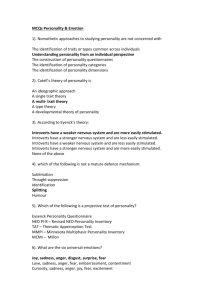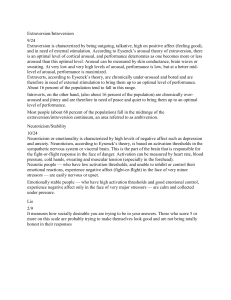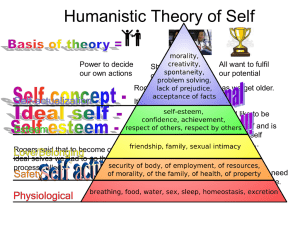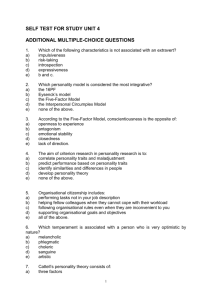Eysenck – Biological Basis of Personality
advertisement
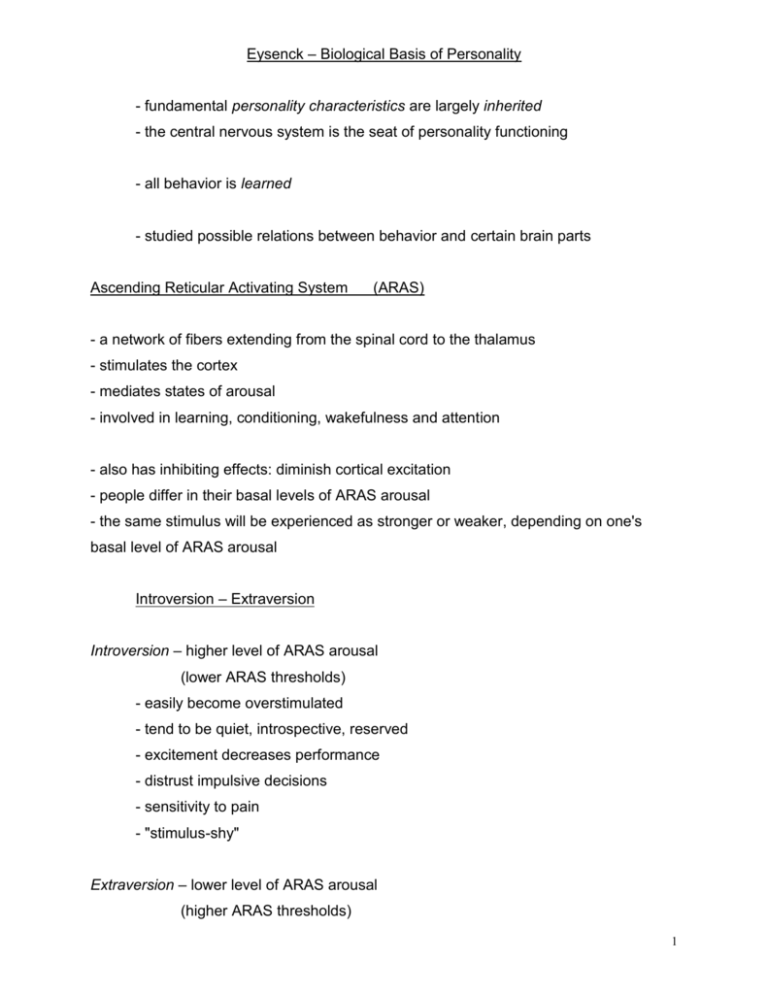
Eysenck – Biological Basis of Personality - fundamental personality characteristics are largely inherited - the central nervous system is the seat of personality functioning - all behavior is learned - studied possible relations between behavior and certain brain parts Ascending Reticular Activating System (ARAS) - a network of fibers extending from the spinal cord to the thalamus - stimulates the cortex - mediates states of arousal - involved in learning, conditioning, wakefulness and attention - also has inhibiting effects: diminish cortical excitation - people differ in their basal levels of ARAS arousal - the same stimulus will be experienced as stronger or weaker, depending on one's basal level of ARAS arousal Introversion – Extraversion Introversion – higher level of ARAS arousal (lower ARAS thresholds) - easily become overstimulated - tend to be quiet, introspective, reserved - excitement decreases performance - distrust impulsive decisions - sensitivity to pain - "stimulus-shy" Extraversion – lower level of ARAS arousal (higher ARAS thresholds) 1 - outgoing, has many friends - likes parties - craves excitement - impulsive - performance enhanced by excitement - tolerance for pain - "stimulus-hungry" Limbic System (Visceral Brain) - related to emotional arousal - acts through the autonomic nervous system - activation of glands, muscles, heart rate, respiration, perspiration, etc. - people differ in activation thresholds Neuroticism - lower threshold for activation of limbic system - greater responsivity of autonomic nervous system - overreact to even mild stimulation - emotionally labile - complain of worry and anxiety It is possible to be intellectually aroused without emotional activation. It is impossible to be emotionally activated without simultaneous cortical arousal. Neurotics may experience emotional arousal to stimuli that would be only cortically arousing to a normal individual. How are Personality Characteristics Acquired? - personality develops from genetic and environmental interactions 2 - dimensions of personality are inherited - behaviors are conditioned and/or learned - ease of conditioning depends on personality - neurotic behavior is learned - involves a conditioned fear reaction - a neutral stimulus is paired with a physically or psychologically painful event - for someone genetically predisposed, only one such experience may be necessary - stimulus generalization occurs - extroverts are not sensitive to stimulation - do not condition easily "Biological causes act in such a way as to predispose an individual in certain ways to stimulation; this stimulation may or may not occur, depending on circumstances which are entirely under environmental control (Eysenck, 1967, p. 222). Evaluation of Eysenck: - Eysenck's model was designed to be tested in laboratory - support for the personality dimension findings - no direct empirical data for hypothesized links with brain functioning Sample questions from the Eysenck Personality Questionnaire 1. Do you usually take the initiative in making new friends? 2. Does your mood often go up and down? 3 3. Are you mostly quiet when you are with other people? 4. Are your feelings easily hurt? 5. Can you easily get some life into a rather dull party? 6. Are you a worrier? 4




